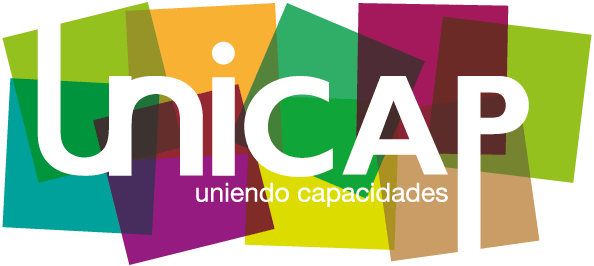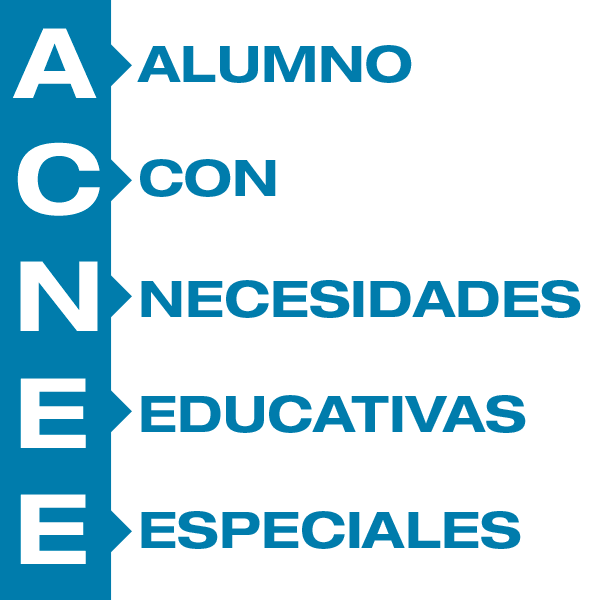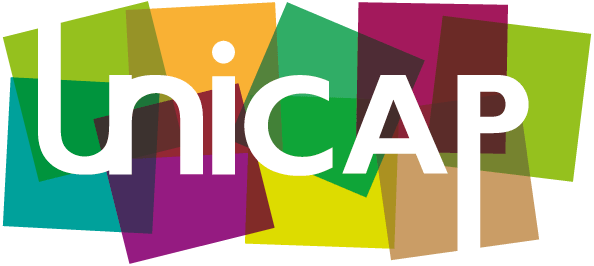
Counselling
Pablo Colotta y Cristobal Calderón (ccalderon.es)
Index
a. What is a SWSEN? (ACNEE in Spanish) Is being a SWSEN the same as having a disability?
b. The process for being considered a student with special educational needs (SWSEN)
d. What are the “supports” in a Regular System with support?
e. Does the support team only work with SWSENs?

What is a SWSEN (ACNEE in Spanish)? Is being a SWSEN the same as having a disability?
SWSEN is the acronym for “Student with special educational needs”. We all have needs, and the needs of a student are “educational needs”: a teacher, a classroom, learning material, a study plan, etc. Public schools have the resources to cater to these needs but sometimes a pupil needs things that are not among the resources which the school normally has: for example, a physiotherapist, a book in Braille, or a study plan that dedicates more time to teaching social skills. In these cases, it is necessary to organize the strategy to teach in a special way. The first step is to consider the pupil as a SWSEN, a student with special educational needs.
Having a disability is another thing. The word “Disability” is used to imply that a person does not have certain physical or mental traits or resources to do the things that the most people can. As a society we have referred to this subject with various terminology: disability, handicap, differently abled, sub normality, mental retardation…some terms we like, others we find disgraceful.
At present the community of Madrid uses the term “disability” to refer to the needs that these people have, needs that are assessed and quantified as a percentage through the Regional Centres.
Regional Centres Information – Community of Madrid (Spanish)
The Regional Centres are attached to the Council of Social Policies and Families (Consejeria de Politicas Sociales y Familia), they are not directly affiliated with the educational system. They recognize if a person has disability and in what percentage. This recognition is very important, as it gives access to aids and subsidies and it guarantees a certain degree of care. However, it does not imply that the school adopts the necessary measures to cater to a student who has been identified as having a disability.
Though it is not frequent, it may happen that a SWSEN does not have a disability or that a person with a disability is not considered a SWSEN. It can be that a child has been evaluated by an educational team and not by a Regional Centre, or vice versa, or that the evaluations have come to different conclusions because the needs of the student differ. A common case is Attention Deficit Disorder, which tends to be considered a cause for special educational needs but not necessarily a disability. In this type of situation, it is always vital that both the Educational Institution as well as the Regional Centre take the necessary steps to make sure that there are no needs left unattended or rights disrespected.
b. The process for being considered a student with special educational needs (SWSEN)
The Community of Madrid´s regional Department of Education (Consejeria de Educacion de la Comunidad de Madrid) has teams of Education Counsellors both for infant and primary education and Counselling Departments in secondary education that evaluate whether a child can be considered a SWSEN. Normally at the petition of a teacher, an assessment of the child, called a Psychological Pedagogical Assessment, is carried out.
This assessment can take weeks to months to be conclusive. On completion, it determines whether the child’s needs can be met by ordinary resources, and if not, the child needs to be considered a SWSEN. The results of the assessment are shared with the child´s family, and if they are in agreement with the findings, a schooling report (Dictamen de escolarizacion) is requested from the Community of Madrid stating that the child be considered a student with special educational needs, SWSEN. When this procedure is approved, and the Local Education Inspection Service has also given its approval, the necessary resources to cover the needs of the child are sent to the educational centre or the child is sent (with the agreement of the parents) to a centre that already has the resources.
c. “Methods of Schooling”
Every child that is enrolled in an educational establishment in the Community of Madrid is in a method of schooling. These are:
Ordinary Modality: Every child is in this category by default. It implies that the educational needs of the child are covered by the ordinary resources that the centre already has.
Ordinary Modality with support: This is when a child is attending an ordinary school but human or material resources are added to cover the special educational needs of the child. All the students attending this method of schooling are considered a SWSEN. This method is also called Integration Programme. One of the principles of attention to diversity is that, although we may have special needs, we are all integrated in the same classroom.
Special Education Modality: Divided into three types:
- Special Education Centres (Centros Educación Especial): All the activity in the centre is organized around the special needs of the students.
- Units of special education in primary and infant schools. (Unidades de educación especial en colegios de primaria e infantil). There is a Special Education classroom in an ordinary school.
- Combined Schooling. (Escolarización combinada). This is when a child goes to an ordinary school on some days and attends a special education school on others.
d. What are the “supports” in a Regular System with support?
This method of schooling requires the participation of other professionals apart from the teachers that normally work with the children in the regular system. The most frequent are specialist teachers in Therapeutical Pedagogy and specialist teachers in Hearing and Speech. There is also a third (type of) specialist, although less frequent, which is the Physiotherapist. All of these professionals make up the Support Team. Their functions are as follows:
- Therapeutical Pedagogy Teacher: This teacher is responsible for meeting the pedagogical aspects implied (involved) in the needs of the child whether these are in attention, lack of progress in their curriculum, emotional or social situations, reasoning, etc. The exact functions of these professionals are difficult to define, as they vary according to the special needs of each child.
- Hearing and Speech Teacher: This professional focuses on the skills linked to language. They deal with problems of pronunciation, vocabulary, constructing sentences, comprehension, etc. Their work is similar to that of a Speech Therapist in health care. Many Hearing and Speech Teachers are qualified Speech Therapists and sometimes are identified as such.
- Physiotherapist: This specialist is very important in the development of the child´s motor skills. If a child has needs associated with a visual problem, they can receive the attention of a physiotherapist specialized in the treatment of this type of problem. The physiotherapist will be the person who teaches the child how to read and write in Braille and train them in visual sweep, etc.
All of these professionals are coordinated by the Guidance Counsellor of the Centre.
e. Does the support team only work with SWSENs?
No. The Community of Madrid assigns to each educational centre the number of Therapeutical Pedagogy teachers and Hearing and Speech teachers needed according to the number of SWSENs enrolled. However, if another student not considered a SWSEN can benefit from attending some support sessions, they can do so. This can be done as long as the SWSEN does not receive less attention than they need. For example, if a group of SWSENs is working on attention focusing skills and there is another child in the school that can benefit from this, the school may decide to add that student to the group. This common practice is known as Type A Support.
f. What is the Guidance Team and what is their role?
You will find more information clicking on this link.
g. Can a SWSEN have an accredited ESO (Obligatory Secondary Education) title, High School Diploma or Baccalaureate title?
The current educational law in Spain is currently under revision. As a result, the requirements for any type of graduation for any type of student at the moment have not been established.

Recent Comments